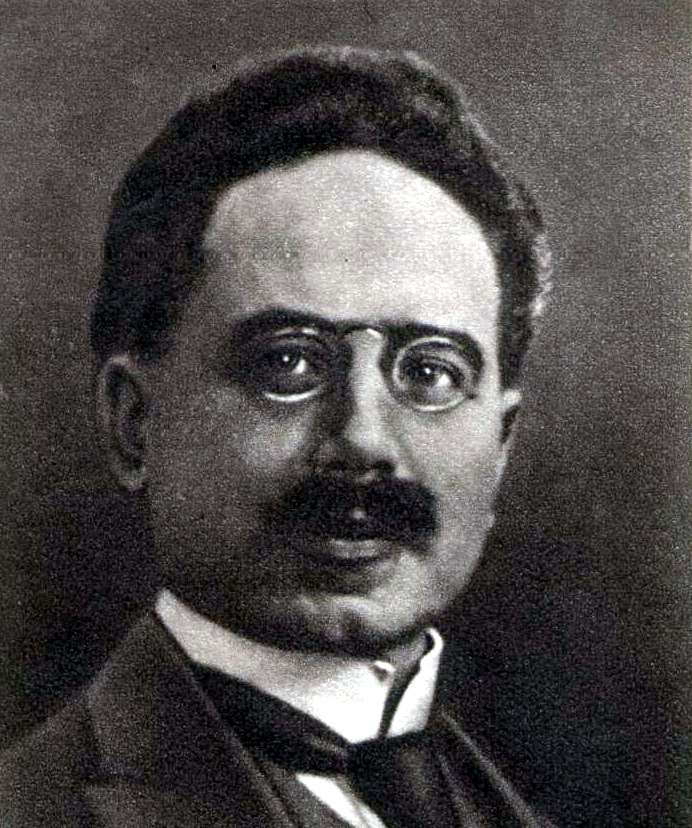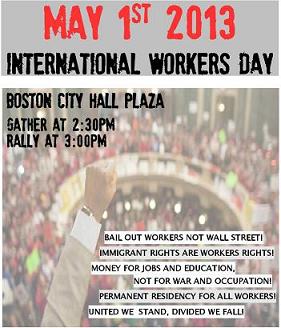Out In The Be-Bop Night- The Golden Boy Orator Of The Flats
From The Pen Of Frank Jackman
I first heard about the golden boy orator of the flats (we’ll just call him golden boy for short from here on in since no one ever called him anything else and subsequent investigation never turned up any other name, Christian name, anyway), Duffy O’Shea, from my grandfather who said that he had first heard him over near the Park Street subway station in downtown Boston back in the 1930s when he would roar like a lion about whatever was on his mind. In those days my grandfather said what was on golden boy’s mind, what was on everybody’s mind what with the Great Depression of the 1930s bothering everybody, was the evils of capitalism, about how the working man was getting the short end of the stick, about how the good citizens of Boston needed to rise up and smite old Pharaoh, old Mister Greedy banker down on State Street, those old Satan Mayfair swells who were having a good old time just up the street on the other side of the State House on Louisburg Square and do it now. And while he held forth my grandfather said you could hear a pin drop, his great mane of golden hair flowing in the wind on Boston breezy days, his suit freshly pressed, his shoes brightly shined. And when in good voice he sounded like some siren call from the depths of Ireland and its eight hundred years struggle against the bloody British. Yes, golden boy cut quite swath in those days while he was on his soapbox (literally in those days when everyone who wanted to be orator had one, usually some old sturdy unfinished throwaway produce box found down at Haymarket after the venders had finished with them, in order to be heard and seen by the crowds as they formed up for the daily class- war battles, class war on the edges of the Common).
My grandfather, my maternal grandfather, Daniel Riley, no mean orator himself when in the cups, and not a man to be easily impressed as I know from my own living experience with him, would go on and on about how golden boy would take on all comers when it came to it. See this was theater, street theater of a sort back in those days when oratory skills were highly valued and when one who could use those skills to effect could get a hearing, especially on Saturday and Sunday afternoons when working people, mostly, would stroll through the Boston Common listening to this one and that one spout whatever it was they wanted to spout. And they would come and go, depending on the fashion, snake oil salesmen, magic elixir guys, guys selling books of every description for every remedy, women standing up for some cause, or just ready to tell fortunes, it was all mixed up, all mixed up except everybody always made sure that they stopped at the golden boy’s soapbox, and if they were happy with what he said that day, or he bested some heckler, or some has-been professional political shouter they might drop a dime or two in his hat placed before the soapbox. See my grandfather said this is the way golden boy, and other too, kept body and soul together during the 1930s, this was their job.
Like I said before my grandfather said golden boy was good at his “job” because he survived through all of the 1930s on that same soapbox. And he always looked presentable, 1930s presentable any way. My grandfather said he remembered this one time this heckler, this big blob of a guy who looked like he would swat golden boy away with one sweep if it came to that, was really being merciless toward golden boy calling him a communist, a red, Stalin’s boy, un-American , a dupe, a nigger-lover (exact words if you can believe that), a kike-lover (ditto on the believe), and that he should watch out when he and his kind fall into Hitler’s hands.
Golden Boy parried those wordy blows, parried with ease, making the goon madder and madder, and more venomous too. Well this guy finally blew his top and start talking about how golden boy was nothing but an ape-like mick, goddam Catholic blarney boy. Golden boy stopped, said nothing for what seemed like an eternity, and then in a very low voice at first, sensing who was in his audience, began an impassioned defense of the old country, the old sod, the boyos of Easter 1916 and every other Irish diaspora-worthy thing he could say. The crowd turned from a passive mass watching a debate, having a good Saturday’s entertainment, to an angry menacing mob ready to avenge eight hundred years, or some hundred years of hurts, especially couple of hefty lads from Southie (South Boston then the center of the Irish diaspora in Boston) who on another occasion had baited golden boy themselves. The long and short of it was that this crowd, this mob, turned their faces toward the goon and started marching on him, angry, getting angrier and as their pace stepped up (egged on by golden boy’s cadence) they made him run, run for life. And leading the pack was my grandfather.
I loved that story and would ask him to repeat it whenever there was a quiet moment of his choosing. Then one day back in the early 1960s, one day when I hadn’t seen him for a while since I had grown into a teenager by then with teenager angst and alienation concerns and no time for an old man’s memories he told me that on his last trip to Boston he had found out, found out second hand, that golden boy was still holding forth at Park Street on Saturdays and that I should, despite my busy schedule, make time to go hear one of the last of the great Irish orators. And I did so a few weeks later. When I leaped up the stairs to the exit at Park Street I heard a voice, kind of scratchy, kind of lilting too though, speaking of the great struggles for civil rights down in the South and that one and all must support the freedom riders and the sit-in students. Since I was interested in that whole civil rights struggle down South as I was getting my own political feet wet, I figured that that voice would have a mob around him. When I exited the station I was surprised to see a man about fifty feet away, an old tall man with white hair, unkempt hair that might have at one time been blond, in an old bedraggled suit that had seen better days, wearing shoes that desperately needed shining standing a little wobbly on a soapbox with a small cigar box in front for donations. Golden boy. And as he held forth, held forth kind of righteously not one person stopped to hear his message…


